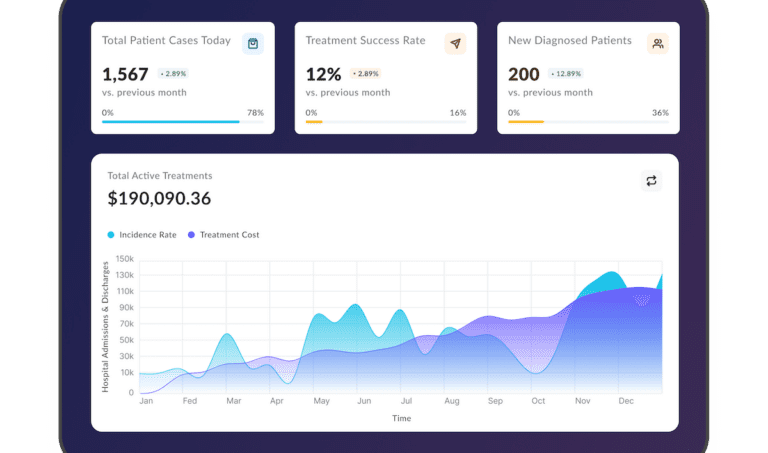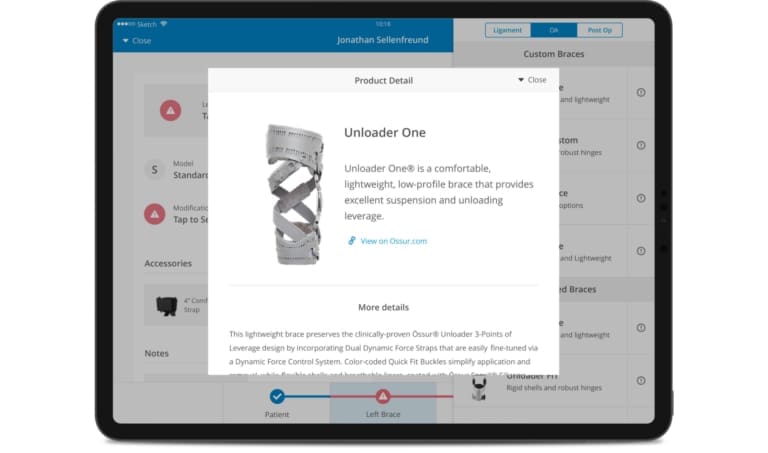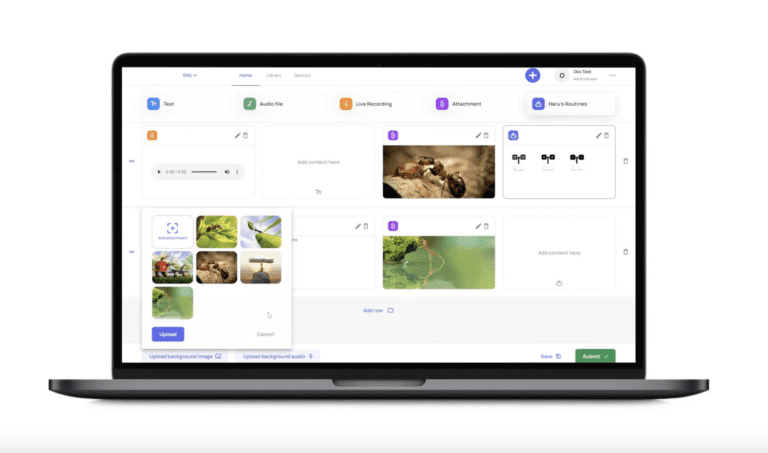Digital Transformation in Financial Services
Updated: January 28, 2025
Is your company stuck in the stone age? These days, if you aren’t updating your company’s processes at least once a week, you’re probably behind.
Our team here at Relevant knows how important it is to stay ahead. That’s why we wholeheartedly support digital transformation. This is especially when it comes to finance industry digital transformation.

We provide companies with senior tech talent and product development expertise to build world-class software. Let's talk about how we can help you.
Contact usOur years of experience and dedicated team make us one of the most qualified businesses out there when it comes to digital transformation. Whether you’re looking for a team of experts, a place to outsource your product development, or trustworthy professionals in idea validation, we have a variety of services to choose from.
Keeping up with today’s technologies and investing in your products and services will improve your business’ practices. In turn, your business will see growth and success.
To learn more about investing in technologies and how devotion to digital transformation in financial services can transform your business, find related digitalization case studies as well as your financial business transformation roadmap, keep reading.
Table of Contents
10 Questions to Ask Your IT Team Before Finance Digital Transformation
If you want to know whether or not your IT team is effective, you need to ask ten essential questions. These questions will help you determine your IT team’s role, resource model, and technology foundation.

Let’s run through each question and talk about what it can tell you about your team.
1. How Is the Business Making Technology Decisions?
In order to approach digital transformation in finance in 2021 effectively, you need to look at how your company is making technology-related decisions now. Being able to see any flaws in your business’ current plans can help you create a better plan in the future.
You want to make sure that you understand the decision-making process for every level within your company. If the path of decision-making isn’t the same, it’s important to take the time to align your IT team with the rest of your departments.
2. How Does the Business Track and Maximize the Value of Investments?
More specifically, you should be interested in how your business tracks and maximizes the value of your technology investments. Looking at whether or not the technology that your business is investing in is worth the investment is important.
Overall, looking at your technology investments often can help you make more targeted decisions. The more that you work with investing in technology, the more prepared you’ll be to make future decisions regarding these investments.
3. How Often Does the IT Team Seek User Input?
Collecting data about user experience is important when it comes to creating and launching a successful product or service. Usually, user testing comes as a part of project management.
If you’re looking to please your customers and clients, you need to make sure that your technology teams are taking the time to reach out to users for their feedback.
4. Who Is the Company’s Best Engineering Talent?
Identifying your company’s best engineering talent is crucial to ensuring that you’re taking advantage of the best employees that your company has hired. However, it’s not good enough for your company to have the best engineers.
Once you hire these engineers, you need to place them in the best positions within your company. Why would you waste the best talent on the lowest positions?
5. How Many Projects Did IT Not Complete?
It may seem odd to focus on the projects that IT didn’t complete, but these projects (or lack thereof) can tell you a lot.
First off, it can tell you whether or not IT is looking through projects before beginning them. Every team should ensure that the projects that they’re working on are valuable. If your teams are wasting time on projects that don’t mean anything, your company is going to suffer.
6. How Long Does It Take Your Company to Release New Applications?
Timeliness is extremely important, especially for companies that are looking to complete projects. One of the top rules in project management is to follow the project timeline.
Most often, projects lag because of ineffective technology. Whether it’s a lack of communication or an unusable platform, technology can make a huge difference in your team’s project-building process.
7. Which of the Company’s IT Capabilities Do Vendors Provide?
Next, look at what capabilities your current vendors provide your company. The key here is that your company’s wants/needs should match your vendors’ capabilities.
If you have a vendor relationship that isn’t benefiting your company, it’s time to put it to an end. In the future, you should be targeting vendor relationships to ensure that your company is getting the most out of the vendor-company relationship.
8. How Much Custom Development Work Goes Into Building New IT Solutions?
Looking at the amount of custom development work that your IT team has to do can tell you how project progress is going. Having to do too much custom development work can push a project far beyond the timeline that your team has set.
So, by tracking and limiting the amount of custom development work done on each project, you can greatly affect the time that it takes to complete projects. This is not to mention that you’ll make future projects easier for your team.
9. What Percentage of the Company’s Decisions Are We Making Using AI?
Artificial intelligence is a powerful thing in the digital transformation strategy for financial services. It can make all of the difference in the decision-making process of a business.
The more AI that you have incorporated in your business’ decision-making process, the easier that every decision is going to be. AI makes conducting business easier. This includes tracking resources, creating timelines, and predicting risks.
10. Is Cybersecurity Hindering the Company’s Developers?
Needless to say, cybersecurity is a large undertaking that comes with digital transformation in banking and financial services. You have to protect yourself, your employees, your clients, and your business overall.
If your cybersecurity is so messy that it is affecting your team’s work, you may need to rethink how your company’s cybersecurity system works.
What Are the Trends for Digital Transformation in Financial Services?
Speaking of popular practices, there are plenty of others that businesses follow in their question for digitalization.
If you’re going to follow digital transformation in banking in 2021, you need to know the most up-to-date trends. The companies with the greatest success are those who can keep up with other enterprises.
Digitization
Arguably the most important trend, digitization can take any company from a startup to a success. Transformation in banking requires a shift to digital business in all forms.
Digitalization in banking means that you need to shift nearly everything online. Moving everything online will help you target today’s audience and streamline your business’ tasks.
Automation
Digital banking automation refers to the repetitive tasks that your business can do automatically. That is with the help of automated software.
Automation helps businesses in a variety of ways:
- Automation increases efficiency
- Automation decreases the likelihood of errors occurring
- Automation reduces operational costs
- Automation is customizable and flexible
If your business is lacking automation, you’ll find that you’re going to fall behind every other business that has already picked up on this intelligent innovation.
Advanced Analytics
Another great digital transformation strategy for financial services is advanced analytics. For years and years, businesses have been saving customer data to meet regulatory and insurance requirements. However, business owners have been using it for much more recently.
Customer data contains quality information regarding customer behavior. This means that the business that is using the information can get insights into what the customer wants and how they make decisions.
By getting this kind of insight, you’re going to be able to market the right products to the right customers.
Blockchain
Blockchain is a system that groups information together into ‘blocks.’ This process is extremely helpful for plenty of organizations, including those involved in financial services.
Blockchain has brought about many changes in the financial services industry:
- Reduce fraudulent activities
- Provide transparency
- Reduce costs
- Increase the speed of transactions
- Reduce the number of intermediary banks
Overall, blockchain saves organizations tons of money. When it comes to transformation in banking, blockchain is essential.
AI and ML
AI (artificial intelligence) and ML (machine learning) are critical to a successful digital transformation. Both increase efficiency and decrease cost.
One of the most common and most simple forms of this exists on nearly every website today: a chatbox. A simple chat on screen can drive sales and assist customers automatically.
AI systems can work with data from machine learning to target specific products and services to specific visitors. This kind of investment in digital transformation can help your business see a ton of growth.
Employee Experience
The employee experience matters now more than ever. Employees are standing up for themselves and making their wants and needs known.
Listening is the smartest thing to do.
First of all, your employees are the reason that your business is running as well as it is. Second of all, your employees are the ones who are interacting with your customers/clients.
Both points should be more than enough explanation as to why you need to cherish them. Plus, your employees are only human. Give them grace and learn to work with them rather than above them.
Customer Experience
The customer experience has always been and will always be important. However, it is constantly changing over time.
Most recently, the customer experience has pushed into the world of social media, online interaction, and personal relations. To catch a consumer’s eye today, you need quick, informative advertisements that suit the customer’s needs.
One of the most popular ways of enhancing and improving the customer experience is through financial app development.
Strong Governance
The key to governance is an effective, concrete strategy for measuring growth. Using the right metrics and tools is the key to ensuring that you’re looking after your business and everything that it’s trying to accomplish.
Strong governance is one of the most important factors in the finance industry transformation. These measurements and metrics can tell a company whether or not it is transforming smoothly.
Open Banking
Open banking is also known as “open bank data.” This refers to a practice in the finance industry that allows third-party providers access to the consumer banking ecosystem. This means that these financial institutions can collect information and data from other financial institutions.
With AI and ML, financial institutions can use this data to target the right audiences at the right time.
Cyber and Data Privacy
These days, businesses and customers both care about cybersecurity and data privacy. As attackers learn more effective, malicious methods of hacking, businesses have to keep up. In turn, they have to create better-protected programs.
To get a better look into cyber and data privacy in finance transformation technology, take a look at the fintech security requirements.
By taking advantage of the industry’s extensive knowledge of cybersecurity and data privacy, many businesses see how transformative the change into the digital world can be.
Finance Transformation Case Studies
If you’re still not convinced about the wonders and advantages of digital transformation in financial services, we’ve lined up three case studies. These show how digital transformation can make your business more effective and more efficient.
By undergoing a digital transformation, your company can also take advantage of these benefits.
1. The Digital Transformation of BP
It’s likely that you know about BP or have heard of the name. This tells us that the company is very large. Furthermore, it explains why the company has divisions of its own for tax, treasury, and audit.
Balancing these teams among the rest of its financial staff, BP is employing thousands of financial professionals worldwide.
Needless to say, BP needed a way to keep up with all of these individuals while meeting the demands of a fast-paced industry. Overall, BP was looking for a way to make financial decisions faster.
With this in mind, the company opened itself to the idea of digital transformation. Their team believed that embracing the change to the digital world would lead to faster and more effective decision-making processes that focused more on the value of each given answer.
With BP’s digital transformation, they also underwent a cultural transformation. The shift into the digital world showed BP that they need to focus more on staying current. This led to a greater appreciation for furthering education.
Now, BP focuses on adapting their employees’ mindsets and ensuring that they are constantly learning and staying up-to-date with today’s latest findings. By doing this, BP is setting itself up for consistent success.
Overall, the move into the digital world allowed BP employees to offer more expertise and value to the company as a whole. Predictive analytics, robotic process automation, and a wider acceptance for moving forward have allowed BP to offer a better customer experience and a more effective business plan.
2. Digital Transformation in Germany
Digital transformation is appropriate for companies everywhere. Even in Germany, Siemens – a technology company – underwent a digital transformation.
The company has reached all parts of the world through electrification, automation, and digitalization. Because of this wide reach, the company employs hundreds of thousands of employees across the globe. This means that their finance team is distributed across the globe.
With recent digital advances, the interaction between these team members is easier. However, Siemens hadn’t made the digital transformation needed to do this until recently.
At the beginning of its digital transformation journey, Siemens laid out that it was going to implement robotics, artificial intelligence, and business analytics for the sake of improving efficiency throughout its financial team.
After a short time of having and using these technologies, the company already saw an improvement. In fact, they saw such an improvement that they refer to each individual automated system as a “digital worker.” They have implemented several of these digital workers to undertake repetitive tasks.
Overall, Siemen’s digital transformation led to a wider appreciation for and use of robotic process automation. These self-automated reports were taking thousands of hours away from the workers and allowing those employees to focus on other tasks.
With this, the company saw a decrease in delivery time as well as a decrease in error rates. The company continues to embrace digital change as it comes.
3. Digital Transformation in Finance Through Healthcare
One of the biggest healthcare companies in the world, GlaxoSmithKline, employs nearly 100,000 employees in almost 100 countries. One business process outsourcing partner was handling the finances for this entire company using one enterprise resource planning software.
While these systems are popular and effective, they aren’t perfect. The company wanted to make some changes and had to undergo digital transformation to do so properly.
In its new transformational program, GlaxoSmithKline wanted to focus on cost efficiency, quality, and ease of access. With this, they wanted to make sure that everyone had access to the financial activity. The company considered every employee and partner a piece of its finance family.
By focusing on processes, standardization, and reporting, GlaxoSmithKline was able to change the culture around its financial processes. Suddenly, everyone had become a part of the mission of the company. This created a teamwork structure for the business and launched it forward.
The company’s transparency in finances also led to a firm groundwork and further employee appreciation.
Overall, now their employees can see how their skills contribute to the company. They also know where they need to develop and how they may be able to contribute to future financial goals and needs.
There is also a better understanding of how lower-level employees can become higher-level employees. The system is aimed at training lower-level roles to be able to handle the financial and professional understandings of higher-level roles.
Finance Digital Transformation Roadmap
If you want to see a digital transformation like those companies underwent, you need to follow the finance digital transformation roadmap.
When it comes to digital transformation in finance, there are four steps that you need to follow. Within each step, you need to think about implementing new strategies and technologies that bring your business into the digital world.

By following our digital transformation roadmap, you’ll be able to seamlessly transition your business.
Step 1: Digital Finance Foundation
Starting with a strong foundation is important. Take the time to define what you want your digital business to look like. Then, set goals and define strategies that you’re going to use to enhance finance forecasting and digital transformation.
- Increase your digital vision
- Redirect your finance strategy
- Target scenarios
- Implement digital innovation management and value case
Step 2: Digital Finance Operating Model
Next, you need to look at the operating model that you’re going to use while you’re undergoing digital transformation.
- Implement digital culture and enablement
- Approach customers through digital service
- Governance
- Build structures and systems
- Improve digital organization
- Implement new processes
- Review insights and analytics
Step 3: Digital Finance Roadmap
Now, it’s time to create a roadmap into the digital world. Plan out what you want your digitalization to look like.
- Track your scope
- Follow digitalization steps
- Create timelines based on resources
- Approach decisions through change management
Step 4: Digital Finance Transformation
Finally, you need to follow the roadmap and make a move into the digital world. Then, make improvements as you go.
- Continuously improve based on scenarios
- Adapt through an operating model
- Innovate with digital technologies
- Implement change management
- Use digital resources in company marketing
Once you’ve reached this step, you’ve made your transition into the digital world. This is now the time to stay vigilant as the platforms change. Digitalization isn’t permanent, but – as long as you stay on top of the most current trends – your business is set up for success.
How to Become Digital
If you haven’t taken advantage of digital transformation in financial services yet, the time is now. The sooner that you take the leap into a digital business, the quicker that you’ll see a jump in your customer interaction and product development.
Using fintech software development services, your business will thrive.
Contact our team here at Relevant today to develop the right digital transformation strategy for your financial services business. We can help reduce your development and management burden.
Our core services:
Do you want a price estimate for your project?
Do you know that we helped 200+ companies build web/mobile apps and scale dev teams?
Let's talk about your engineering needs.
Write to us











